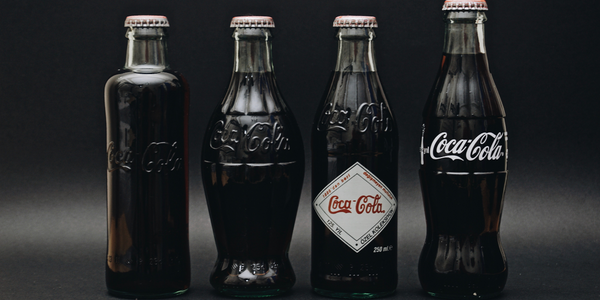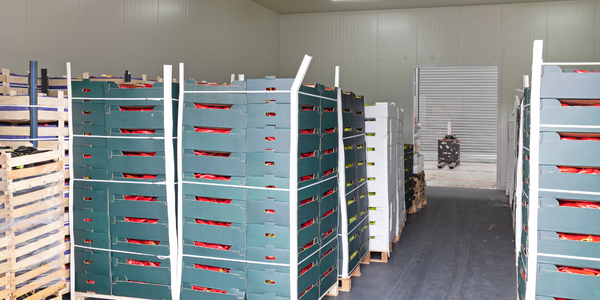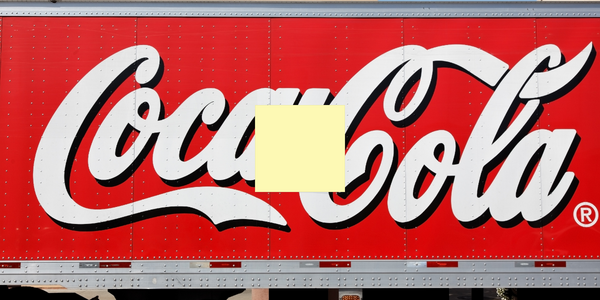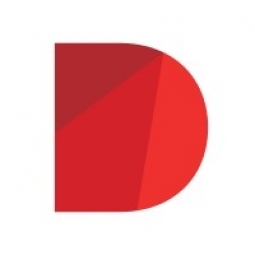Customer Company Size
Large Corporate
Region
- America
Country
- United States
Product
- Diligent Boards
- Diligent Messenger
Tech Stack
- Secure Messaging
- Encryption
- Authentication
Implementation Scale
- Enterprise-wide Deployment
Impact Metrics
- Productivity Improvements
- Digital Expertise
Technology Category
- Application Infrastructure & Middleware - API Integration & Management
Applicable Industries
- Food & Beverage
Applicable Functions
- Business Operation
Use Cases
- Remote Collaboration
Services
- System Integration
About The Customer
General Mills is a leading global food company whose purpose is to make food the world loves. Its brands include Cheerios, Annie's, Yoplait, Nature Valley, Häagen-Dazs, Betty Crocker, Pillsbury. Old El Paso, Wanchai Ferry. Yoki, BLUE and more. The company's board of directors started using Diligent Boards in 2011 as a secure solution for board meeting management. In 2019, the board added Diligent Messenger, an integrated messaging app that centralized their board messages and ensured all communication to and from directors was encrypted.
The Challenge
General Mills' board of directors started using Diligent Boards in 2011 as a secure solution for board meeting management. Prior to using Diligent, the organization was using a paper process, which didn't offer the efficiencies or protections the corporate secretary group needed. In 2019, the board added Diligent Messenger, an integrated messaging app that centralized their board messages and ensured all communication to and from directors was encrypted. When the COVID-19 crisis hit, the Diligent solution enabled the General Mills board to respond swiftly and effectively to work at-home requirements. The corporate secretary group was able to continue operations remotely, including scheduling board and committee meetings and securely delivering regular COVID-19 updates to the board.
The Solution
Diligent Messenger enables General Mills' board to get important information to directors while keeping it away from prying eyes and hackers. Directors receive messages through a single application they can access securely from any approved device. Diligent Messenger functionality mirrors text messaging with the ability to send attachments. Messaging is protected by log-in authentication and email controls that prevent 'copy and paste' email forwarding. Strict encryption and permissions keeps private messages private. If a device is lost or stolen, Diligent's customer success managers can have the device remotely wiped to protect board materials. Diligent Boards further strengthens the board's ability to share critical information in a secure environment. Through strict encryption and permissions, sensitive communications remain secure. Meanwhile, virtual 'rooms' and workflows support committees, collaboration, and modern governance functions like virtual shareholder meetings.
Operational Impact

Case Study missing?
Start adding your own!
Register with your work email and create a new case study profile for your business.
Related Case Studies.

Case Study
The Kellogg Company
Kellogg keeps a close eye on its trade spend, analyzing large volumes of data and running complex simulations to predict which promotional activities will be the most effective. Kellogg needed to decrease the trade spend but its traditional relational database on premises could not keep up with the pace of demand.

Case Study
HEINEKEN Uses the Cloud to Reach 10.5 Million Consumers
For 2012 campaign, the Bond promotion, it planned to launch the campaign at the same time everywhere on the planet. That created unprecedented challenges for HEINEKEN—nowhere more so than in its technology operation. The primary digital content for the campaign was a 100-megabyte movie that had to play flawlessly for millions of viewers worldwide. After all, Bond never fails. No one was going to tolerate a technology failure that might bruise his brand.Previously, HEINEKEN had supported digital media at its outsourced datacenter. But that datacenter lacked the computing resources HEINEKEN needed, and building them—especially to support peak traffic that would total millions of simultaneous hits—would have been both time-consuming and expensive. Nor would it have provided the geographic reach that HEINEKEN needed to minimize latency worldwide.

Case Study
Energy Management System at Sugar Industry
The company wanted to use the information from the system to claim under the renewable energy certificate scheme. The benefit to the company under the renewable energy certificates is Rs 75 million a year. To enable the above, an end-to-end solution for load monitoring, consumption monitoring, online data monitoring, automatic meter data acquisition which can be exported to SAP and other applications is required.

Case Study
Coca Cola Swaziland Conco Case Study
Coco Cola Swaziland, South Africa would like to find a solution that would enable the following results: - Reduce energy consumption by 20% in one year. - Formulate a series of strategic initiatives that would enlist the commitment of corporate management and create employee awareness while helping meet departmental targets and investing in tools that assist with energy management. - Formulate a series of tactical initiatives that would optimize energy usage on the shop floor. These would include charging forklifts and running cold rooms only during off-peak periods, running the dust extractors only during working hours and basing lights and air-conditioning on someone’s presence. - Increase visibility into the factory and other processes. - Enable limited, non-intrusive control functions for certain processes.

Case Study
Temperature Monitoring for Restaurant Food Storage
When it came to implementing a solution, Mr. Nesbitt had an idea of what functionality that he wanted. Although not mandated by Health Canada, Mr. Nesbitt wanted to ensure quality control issues met the highest possible standards as part of his commitment to top-of-class food services. This wish list included an easy-to use temperature-monitoring system that could provide a visible display of the temperatures of all of his refrigerators and freezers, including historical information so that he could review the performance of his equipment. It also had to provide alert notification (but email alerts and SMS text message alerts) to alert key staff in the event that a cooling system was exceeding pre-set warning limits.

Case Study
Coca-Cola Refreshments, U.S.
Coca-Cola Refreshments owns and manages Coca-Cola branded refrigerators in retail establishments. Legacy systems were used to locate equipment information by logging onto multiple servers which took up to 8 hours to update information on 30-40 units. The company had no overall visibility into equipment status or maintenance history.







